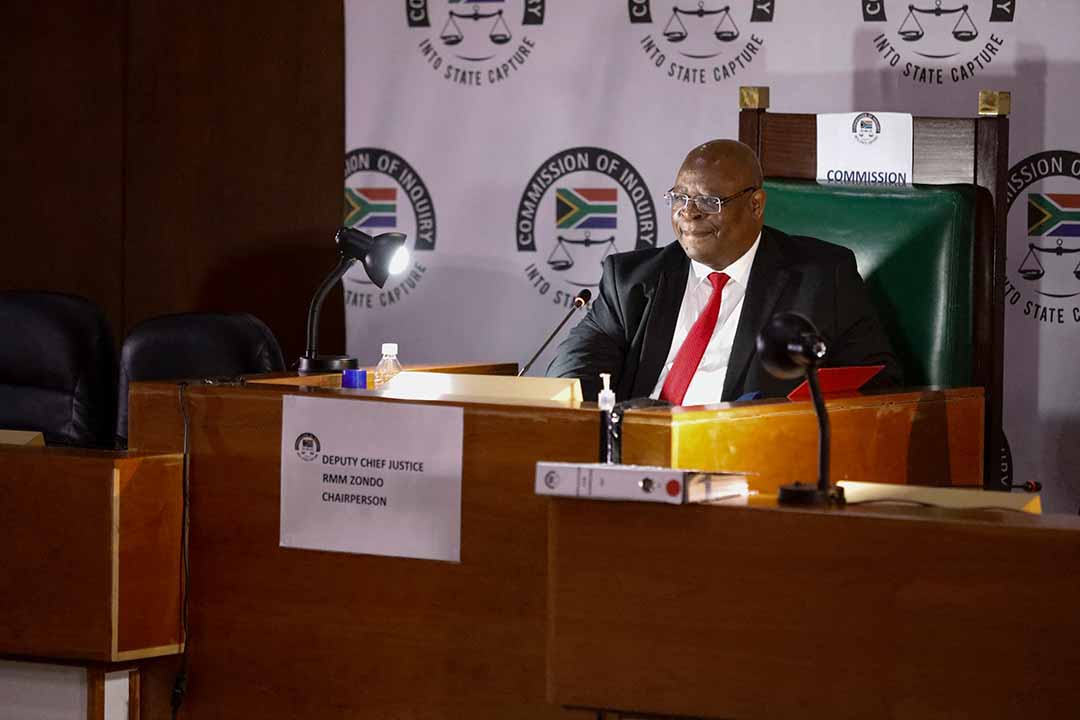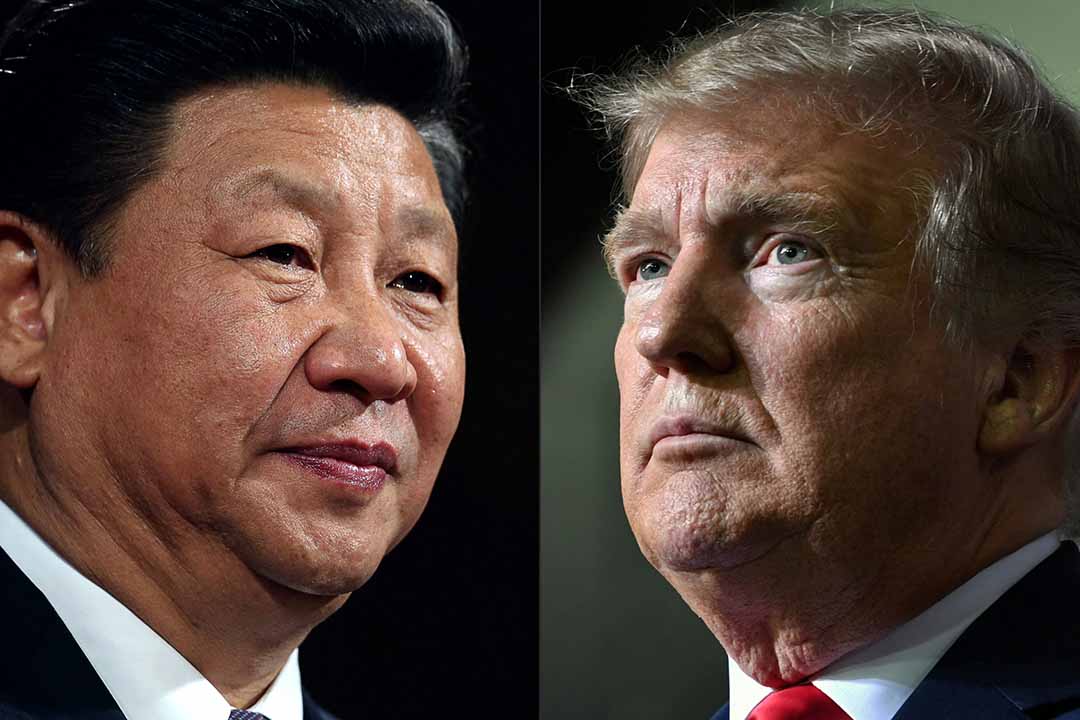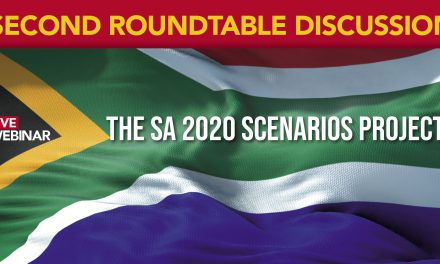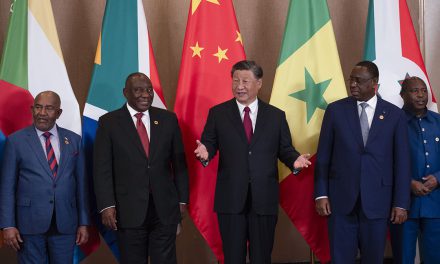Successful states are able to navigate the complexities of geopolitics, the challenges and opportunities that pepper the strategic landscape and make sense of what is often an opaque and dynamic world. A nation’s intelligence apparatus constitutes the apex of its efforts to make sense of a world in flux, inform strategic decision-making and warn of the perils around the corner or further afield.
The idea that any state with South Africa’s level of domestic complexity and fragility, continental engagement and international ambition can succeed without effective intelligence is not merely naïve but dangerous. It would also be a gift to criminals, terrorists and states that seek to weaken the state.

Testimonies before the Judicial Commission of Inquiry into Allegations of State Capture, Raymond Zondo, provide an opportunity and need for reflection, to craft a new path to confront the challenges facing our national security infrastructure.
Our national security apparatus now enters an era of institutional transformation in the context of a fluid and fragile geopolitical situation, compounded by a polity characterised by fracture, instability and strategic drift.
Recent developments such as the Review Panel on the State Security Agency, testimonies at the Zondo Commission and the intensifying internecine warfare in Crime Intelligence and the South African Police Services (SAPS), provide both an opportunity and need for reflection, to craft a new path to confront the challenges facing our national security infrastructure. While the focus of commentary has been on the allegations and counter-allegations of corruption and the factional abuse of intelligence, the questions we need to ask must go well beyond this. Our ability to create an effective, agile and accountable intelligence capability depends on the extent to which we can elevate our thinking to the strategic level and adopt a more holistic view of where we are, what we require and what our options are.
Uncertainty, a fundamental feature of the modern, complex world, presents a paradox to the National Security strategist, whose very purpose is to shape the future in her country’s interest. Therefore, the strategist who ignores uncertainty and complexity relies heavily on Carl von Clausewitz’s ‘vagaries of chance’, whereas those who appreciate and operate within a framework that is cognisant of these realities, while not guaranteed success, improve the possibility of an outcome that favours the national interest. – David Africa
Context is king
The primary driver that determines the nature, scope and mission of an intelligence institution is an appreciation of the real world. If the last 26 years of governance has taught us anything, it is that looking at the world or ourselves through idealistic lenses does not provide a sound basis for understanding the world.
Contemporary geopolitics is characterised by the dangers inherent in the contestation for supremacy between the USA and China. The Trump administration clearly positioned the US for a confrontation with China, not only in the Asia-Pacific theater, but on the African landmass as well as the Indian Ocean. This strategy is not a Trumpist aberration, but a logical development of Obama’s Pivot to Asia and its consequent militarisation through the US Air-Sea Battle Doctrine, initially secret and then made public in 2010. The idea that the new Biden/Democrat administration would fundamentally shift course on the major strategic question of our time is simply naïve, if hopeful.
Power Preponderance is deeply embedded in US strategy, and our neighbourhood is already a site of contestation between the strategic approaches of the two primary global powers: the US concept of Power Preponderance, i.e., its retention of global leadership, and China’s strategy, known as ‘peaceful rise’ [1], aimed at elevating China to a global leadership peer to the USA. South Africa needs to navigate this emerging contestation with great finesse and caution. The role of effective intelligence, utilising the full arsenal of intelligence resources, is a prerequisite for the protection of our national interests as this dynamic plays out.
We face a situation where the ANC, the country’s historical instrument of national cohesion, has lost its own cohesive ability. The disintegration of the ANC constitutes a threat to the cohesion of the society as a whole, particularly in the absence of any alternative cohesive instrument. This has significant consequences for stability, but equally so for the ways in which foreign actors engage the ANC and state. It is a vulnerability that any sensible international player will exploit.
States are self-interested entities that seek to optimise their influence comparative to other states. Great Powers are central to shaping the geopolitical domain through a wide range of tools at their disposal, including persuasion, economic incentives or the creation of an information environment favourable to themselves. At the other end of this spectrum lies coercive action that ranges from diminished trade, the denial of key positions in international institutions, the instigation of social unrest and the sabotage of key state entities. Much of this statecraft is conducted through covert action, which emphasizes the centrality of intelligence in accurately characterising the nature of other states’ strategies towards us, without becoming embroiled in meaningless sloganeering.
Our national interest is inextricably linked to peace and security on the continent, where we collectively face serious threats but also a significant opportunity to re-engineer its economic and developmental trajectory. The last decade of strategic drift in South African foreign policy coincides with and probably contributed to the emergence of a powerful bloc underpinned by non-African interests clearly aimed at reversing the traditional anti-imperialist positions of the AU, South Africa and its allies. The increasing influence of Morocco across the continent, underpinned by French support in West Africa, has seen a strategic loss to our anti-imperialist position in the setbacks suffered by the Sahrawi people in their struggle for independence.
The opening of diplomatic relations with Israel, with the encouragement of the Trump administration as a quid pro quo for recognising Morocco’s control of Western Sahara, again underpinned by strong French political support, undermines a core element of South Africa’s policy on the continent as well as the anti-colonialist essence of the African Union.
Our single biggest challenge is that the Apartheid economy has collapsed without any meaningful structural transformation away from its pillars of resource extraction and cheap labour. Since 1994, South Africa has failed to construct a new people-centred, dynamic and inclusive economy. Our ability to rescue the South African national project depends on constructing such a new economy, a central plank of which should be the opportunities presented by increasing integration on the continent. The African Continental Free Trade Agreement (AfCFTA) provides the first significant opportunity in recent years to shape Africa’s independent path to economic prosperity, coupled with an increased integration of its people and economies. This opportunity must be nurtured and safeguarded, whilst at the same time SA must be in a position to optimally benefit from AfCFTA. In the light of this, the centrality of economic and political intelligence cannot be overstated.

The Trump administration clearly positioned the US for a confrontation with China, not only in the Asia-Pacific theatre, but on the African landmass as well as the Indian Ocean. Photo: Dan Kitwood, Nicholas Kamm/AFP
New domains of statecraft, warfare and intelligence
“An analysis of the nature of modern wars has shown a significant increase in the importance of such an area of confrontation as information…The information sphere, without having clearly defined national borders, provides opportunities for remote, covert influence not only on critical information infrastructures, but also on the population of the country, directly affecting the state’s national security. That is why the study of issues of preparation and conduct of informational actions is the most important task of military science.” – Gen. Valeri Gerasimov
The reconstruction of our intelligence architecture occurs at a time when a revolution in military and intelligence affairs (RMIA) is unfolding, with the concomitant recalibration in the conduct of statecraft, warfare and intelligence. The key tenets of this RMIA are technological, strategic and informational. This trinity of factors are all interdependent, and its application in the real strategic domain has already been witnessed elsewhere, including Venezuela, the USA and UK, Ukraine and Iran.
The emergence of the concept of Non-Linear Hybrid Warfare as the contemporary strategic lexicon has profound implications for the conduct of strategic and intelligence affairs. The expansion of the Grey Zone, the increasingly vague boundaries between War and Peace and the weaponisation of the information domain are factors that could be wielded against us at a moment when our lack of national cohesion and our institutional fragility most exposes us to, and compounds the effect of, such measures. The weaponisation of internal ANC conflict, the lack of consensus on building the developmental state and our decreasing influence on the continent will be exacerbated by an assault that deploys non-kinetic means of warfare, yet achieves the same effect – a loss of sovereignty, social fracturing and an inability to exercise any freedom of manoeuvre to advance our national interest.
The development of micro-targeting and its integration with mass technical surveillance is particularly disconcerting in South Africa, where our national centre of gravity is firmly located in a small group of political leaders or functionaries within the ANC. It is the proverbial shooting of fish in a barrel, compounded by the very real fissures within the ANC.
Building capable intelligence
With the opportunity to learn from the last decade and more of mismanagement, strategic drift, factionalism and opportunism, our collective task is to ensure that we learn the right lessons. Without this, the entire exercise will repeat itself in the not too distant future. What are some of these lessons?
“Learn from life, learn from our people, learn from books, learn from the experience of others. Never stop learning.” – Amilcar Cabral
Intelligence without strategy is the equivalent of deploying a missile without a guidance system, and the construction of an intelligence architecture without a National Strategy and National Security Strategy will have the nett effect of creating a bureaucratic apparatus that has no sense of mission, cannot develop a cohesive strategic or institutional culture, recruit the right staff, deploy them properly or resource them in a manner equivalent to their purpose. The first order of business in crafting a new architecture is therefore to initiate an inclusive and rigorous strategy development process. My own view is that such a process and consequent strategy will make evident the need for a transformation in intelligence far beyond the return to the status quo prior to the merged SSA.
If South Africa ever needed an intelligence capability it is now, when the country is fragile, its social cohesion fractured and the geopolitical situation fraught with potential conflict. But any old cosmetic rehash for the purposes of public consumption won’t do. Testimony before the Zondo commission serves a cathartic purpose, but also carries within it the potential to simply identify a few villains in what remains a complex structural problem. Such a narrow, if appealing, view of the causes of the rot in our intelligence community will not allow us to create a capability that can meet the challenges we face.
We also face the risk of conscious ‘under-reach’, i.e. the tendency to compensate for abuse by moving to the other extreme of not capacitating the new institutions with the authority, strategic direction and mandate to do proper intelligence work. The ideological basis for this has already been planted in the suggestion that our intelligence services can only function properly within the context of what some refer to as ‘intelligence as done in the established democracies’. Apart from the fact that in matters of intelligence, these states often preach one thing and practice something else, it is critical that we create an independent path in recreating our intelligence architecture instead of copying a “do as I say, not as I do” model from the ‘developed democracies’.
The widespread interception of personal communications by British and US intelligence exposed by Snowden, the mode of accountability by obfuscation so essential to British intelligence oversight and the use of torture by the CIA, offers a cautionary tale. We cannot replace factionalised intelligence with neutered intelligence. Having learned the lessons of 26 years of intelligence governance and oversight, the reconstruction of the South African intelligence architecture must simultaneously consider new and effective means of oversight and accountability of our national security architecture. Appropriate strategic alignment, effectiveness, ensuring the centrality of the National Interest instead of narrow party interest, and the judicious use of state resources must be central planks of such an oversight and accountability system.
The liberation movement has a long history of innovation in theory, organisational design, mobilisation and tactics. This history itself was preceded by the innovation and boldness displayed by our people during the wars of resistance against colonialism. Instead of mimicking a liberal-democratic model of how intelligence ought to be done, we should draw on the extensive resources available in our security community, academic and policy circles and civil society to create institutions that are capable of serving the national interest.
The learning required to build an intelligence architecture that capably serves the nation’s interests requires a conscious effort to dislodge ourselves from groupthink, placing the national interest at the core of our efforts, a bravery to go beyond what is known and comfortable, and a commitment to challenging our own biases.
All of this is easier said than done, especially in a bureaucratised and factionalised intelligence community. Through the work our team at ACSIP has done with analysts and national security leaders, we have experimented with a range of models, activities and approaches to institutional analysis and strategy. This includes complex-dynamic national security scenario analysis, strategic gaming and strategic culture exploration. The toolbox to innovate and deliver an effective intelligence architecture should utilise these and other tools and resources, instead of reverting to the standard box-diagram exercises that seek to shift things around in order to minimise disruption and guarantee everyone’s place in a new institution.
Those who will lead this transformation into an uncertain future have at their disposal the commitment of the South African people, the professionalism and patriotism of the majority of intelligence professionals and the willingness of experts from all fields to ensure their success. What we require from them is boldness in vision and a drive to innovate an architecture that can meet the challenges of our complex times, serve the nation loyally and is composed of the best among us.
[1] I use the strategic concepts ‘power preponderance’ and “peaceful rise”, as commonly used by their respective proponents. These are the official premises of US and Chinese strategy in their respective international relations. They are not used here in the normative sense.
*This piece does not necessarily reflect the views of GGA. GGA is a platform for debate and we encourage the exploration of a plurality of views that will ultimately help to improve governance on the continent
David Africa worked in South African counter-terrorism intelligence after 1994, where we was centrally involved in the development of South African counter-terrorism capability and approaches to countering extremism. He has taught counter-terrorism and security studies at the George C Marshall Center for Security Studies in Germany and lectured widely on intelligence and counter-terrorism in Africa, Europe and North America. He also headed the UN security analysis unit in Baghdad in 2006-2007. David read graduate-level International Relations in South Africa and the UK. He now directs the African Centre for Security Intelligence Praxis (ACSIP), a specialist intelligence and strategy consultancy committed to the development of capability in and insight on Africa.






